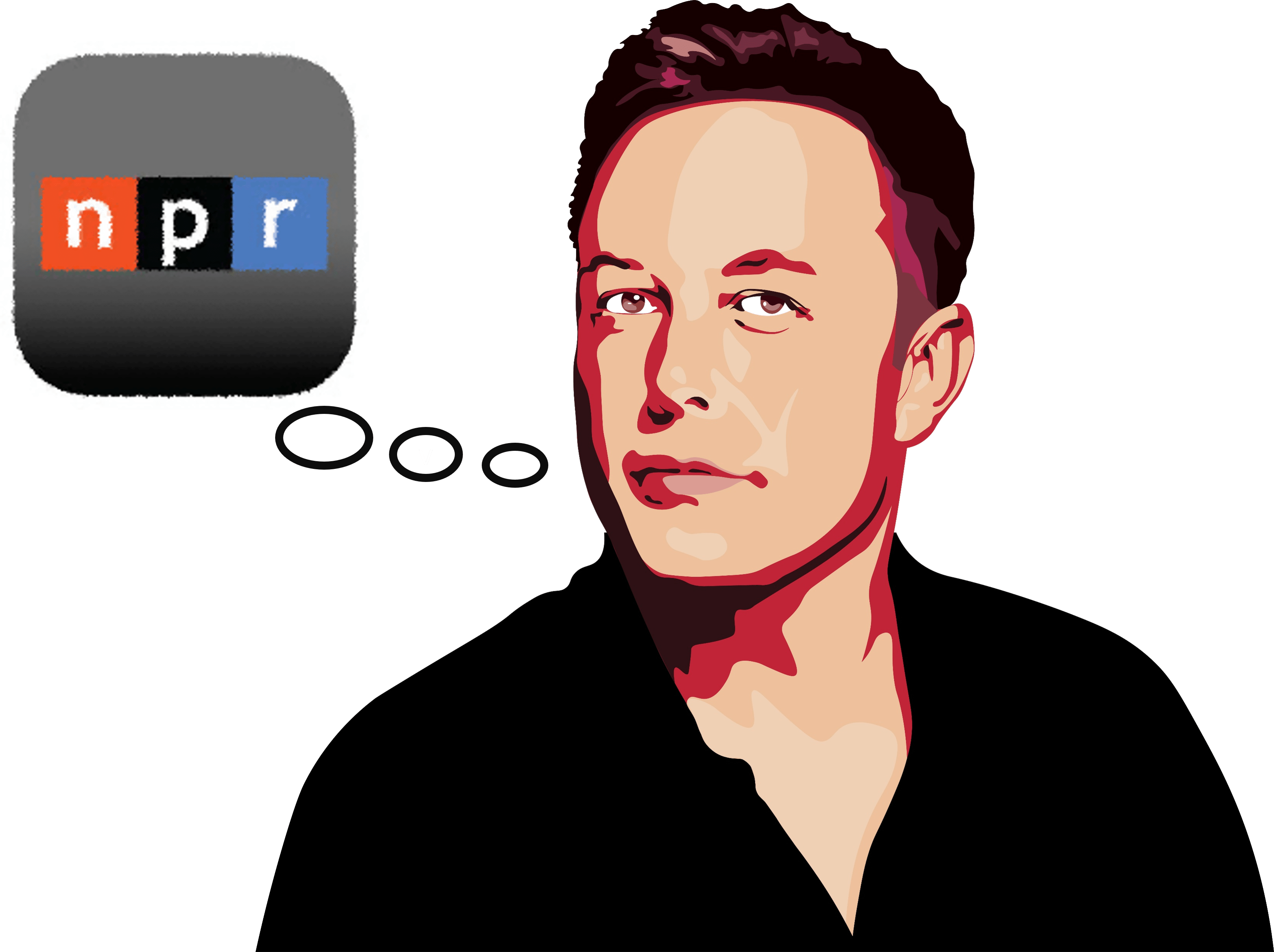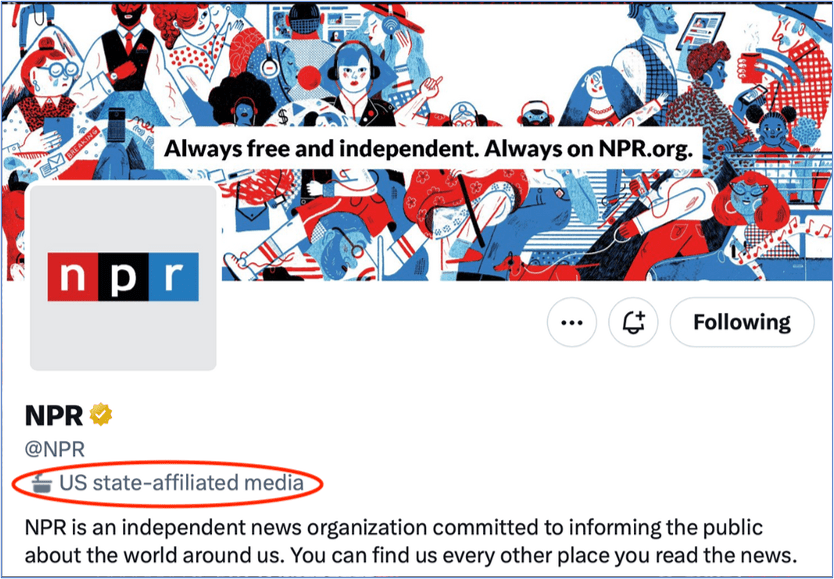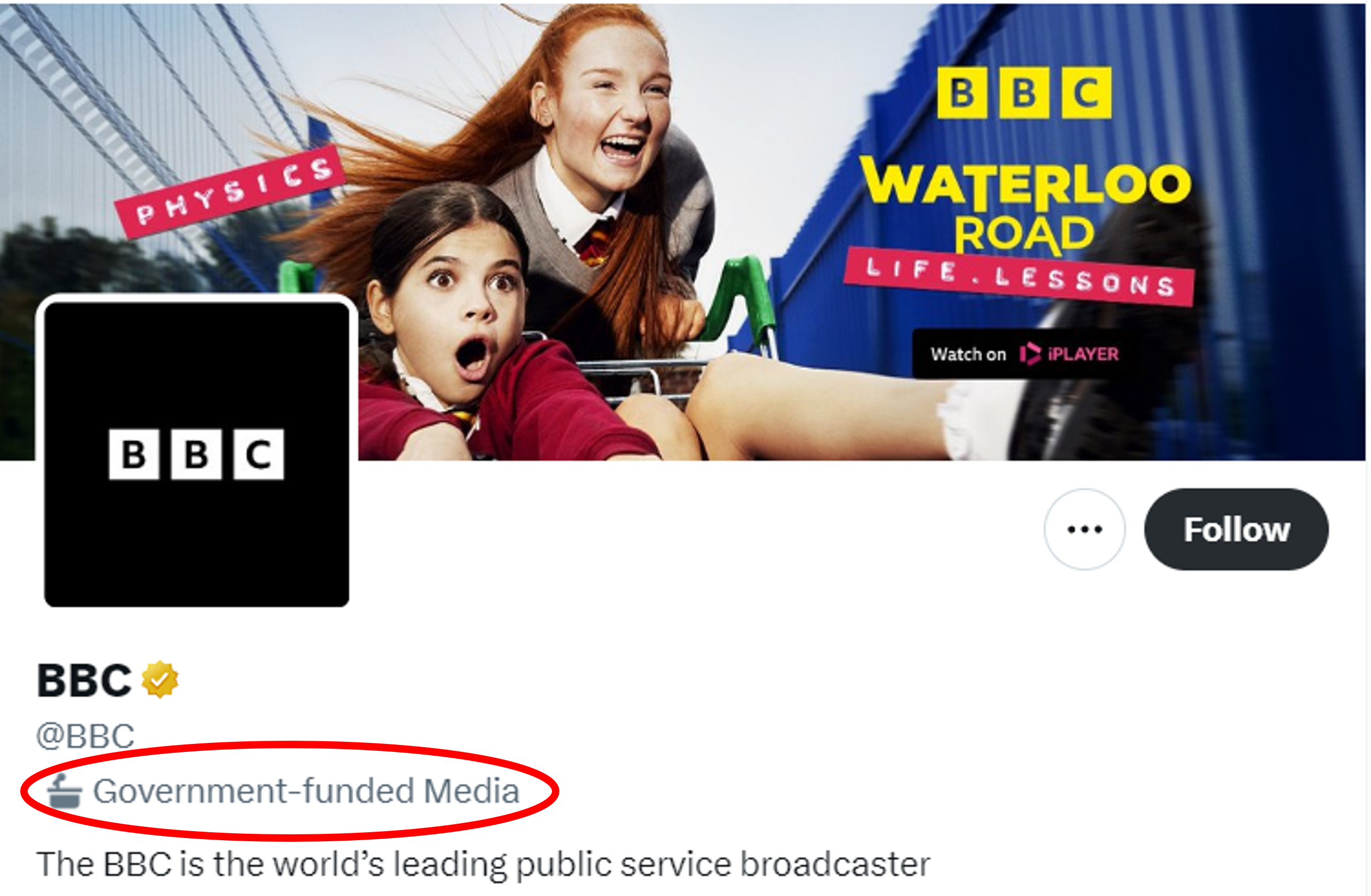
The Elon Musk / Twitter saga gets weirder by the week. If you’re not exactly sure what Musk is actually trying to accomplish with Twitter, join the group.
We do know this – Musk paid in the neighborhood of $44 billion for Twitter late last year. Unlike social platforms like Facebook and Instagram, Twitter has struggled to find its purpose. On the one hand, Twitter is meme-heavy, humorous, and snarky. On another, it can be a fascinating news source, often getting to a story quicker than major league news operations like the Associated Press, Wall Street Journal, the BBC, and the New York Times.
Unlike other social platforms whose mission is to connect people with people, there’s a B2B quality to Twitter. Its participants are often icons in pop culture, sports, journalism, media, literature, and politics. Twitter communities are collections of users who want to know the inside scoop about what is near, dear, and fascinating to them. While it may never be the biggest, Twitter has almost always been the most edgy, controversial, and topical of its ilk.
And that’s what Musk bought. Clearly though, he’s had an agenda from the beginning, hurling around epithets like “free speech” while often taking the media to task. His unpredictable “hot takes” have consistently made headlines, in much the same way Donald Trump used the platform as a tool – or cudgel – to communicate his observations….about pretty much everything during those early years when he sidestepped the media by craftily using Twitter as his social media megaphone.
Since purchasing the platform, Musk seems to be walking a jagged line that may have just landed Twitter in a variant of the old “you break it, you buy it” category. In Musk’s case, the reverse may be true.
How bad a start has it been for the Musk Era of Twitter? The New York Times recently got a look at an email to Twitter employees last month that quotes Musk saying the social platform is now only worth $20 billion – less than half what he paid a mere six months ago.
Impressive.
When the Times announced it would not pay for its telltale Twitter “blue check,” the subscription model Musk put into effect, he went after them with both barrels.
The real tragedy of @NYTimes is that their propaganda isn’t even interesting
— Elon Musk (@elonmusk) April 2, 2023
In a war of words…and facts….my money’s on The Times.
Last week, it was NPR’s turn in the Musk barrel.
In a move that shocked news outlets everywhere, he designated NPR as “US state-affiliated media,” a label usually reserved for news outlets whose content is controlled by the government – like in China or Russia.

Whether you’re a tote bag carrying fan of NPR and public radio or someone who doesn’t appreciate its reporting, there’s no argument any government has anything to do with what’s on their airwaves.
That elicited a quick but measured response from NPR’s CEO, John Lansing. He pushed back against the Twitter designation, noting the organization was “disturbed” by the label. Lansing added the move was “unacceptable,” nothing “a vigorous, vibrant free press is essential to the health of our democracy.”
Nice words with a dash of NPR’s patented understated civility. But when you find yourself in a nuclear war with a free-wheeling, say-anything bully like Musk, you’re in an altogether different kind of fight. Welcome to the jungle.
One thing you’ll note if you follow NPR – they stopped tweeting on their account not long after Musk relabeled them. And if you look at their Twitter slug line, it now reads “You can find us every other place you read the news.” The emphasis is mine, but the message clear. NPR will no longer contribute content to Twitter.

NPR’s business reporter, Bobby Allyn, put on his dogged journalist hat and chased down Musk with a barrage of emails questioning the Twitter label. Eventually, the bodacious billionaire responded in what turned into a back and forth that is nothing short of fascinating. You can read a transcript of Allyn’s story, as told to NPR reporter/anchor, Mary Louise Kelly or listen to the audio below.
In the interview, Allyn explains Musk’s thinking about the way he labeled NPR “has just been all over the place.” In reality, Twitter’s CEO doesn’t really understand the distinction between public media and a government controlled entity like Tass.
Not surprisingly, the last thing Musk is doing is reasoning with the facts. He actually asked Allyn for the particulars of NPR’s funding (in reality, about 1% comes from government grants) and how the organization’s leadership is chosen (an independent board makes those calls). Of course, that info is available for anyone to see on NPR’s website.
Not long after, Twitter (or Musk) changed NPR’s label to “Government funded media,” which remains on its banner as of this morning.
To its credit, NPR is still not tweeting, obviously wondering how an organization that gets 1% of its funding from Uncle Sam merits the new designation.
The BBC is wondering, too. They’re another media outlet that got tagged with this Twitter label, despite the fact their funding comes from the citizens of Great Britain.

Somehow, every 8 year-old in primary school in the UK knows what apparently Elon Musk is unaware of – or doesn’t care to learn about the not-so-mysterious origin of BBC revenues.
In a terse “explainer” story from the BBC a day ago, journalists James Clayton and Adam Durbin wrote that Twitter has been contacted to set the record straight:
“The BBC is, and always has been, independent. We are funded by the British people through the license fee.”
Unlike NPR, the BBC is still tweeting away – “feeding the beast,” as former NPR CEO Jarl Mohn put it to me yesterday.
But KCRW isn’t. The legendary news/music combo station out of Santa Monica is supporting NPR by also no longer throwing any more verbal chum into Twitter’s roiling waters.
KCRW will no longer share our content on Twitter from this account.
📌 Here’s a guide to how you can keep up with us off of Twitter:
— KCRW (@kcrw) April 7, 2023
Kudos to KCRW manager Jennifer Ferro for standing in solidarity with NPR. It begs the question why other public radio stations across the country aren’t doing the same.

Twitter makes its living from content produced by some of the world’s biggest and most influential media outlets. Ferro is saying “no” and other pubic radio stations should have the courage (and good sense) to join KCRW.
For that matter, Jarl Mohn wonders why other credible news media outlets are still doing business on a platform that calls them out as propagandists or mislabels their funding source. It’s misinformation of the worst kind, it erodes journalism in the U.S. and the world, and it sows more anger and divisiveness – as if we don’t have enough.

For NPR, KCRW, and other public radio stations who opt to suspend their tweeting as long as Musk paints them with the inaccurate Twitter brush, this incident may turn out to be a blessing in disguise.
In the past, various members of Congress have threatened to defund public radio (and NPR), including Newt Gingrich’s assault nearly 30 years ago. No, I don’t have the spreadsheets to validate it, but it seems like every time public media funding is placed in jeopardy by an errant politician, the dollars of support to NPR come flowing in from all quarters – listeners, foundations, businesses, and organizations.
Thanks to Twitter’s new owner and half-baked policies, that is likely happening right now. And for NPR, not a moment too soon. If you’ve been following the travails the public media network has endured these past few years, you know its own news cycle has been nothing short of precarious.
NPR has lost high-profile talent, including Audie Cornish (to CNN), Lulu Garcia-Navarro (to the New York Times), Sam Sanders (to podcasting world), and others.
Overall, NPR’s podcasting dominance has slipped, perhaps forcing the public media network to cut a sales and distribution deal with Spotify.
And then just a couple weeks back, NPR laid off 10% of its staff, while terminating the production of four of its podcasts.
In a left-handed paradoxical way, the Musk assault could turn into a morale – and financial – booster for NPR – if it shows leadership and courage.

Maybe that means inviting Musk on the air for a “conversation” about media, journalism, and democracy. I’m not an assignment editor, but my choice for host would be the aforementioned Mary Louise Kelly. She’s fearless, relentless, smart, and prepared – and she can go 12 rounds with anyone, especially shoot-from-the-hipsters like Elon Musk.
Or perhaps invite Twitter’s new boss for a VIP tour through NPR headquarters in D.C. to learn first-hand what a paragon of journalism looks, sounds, and feels like.
OK, maybe it’s the PD in me that sniffs marketing opportunity when I get a whiff of the arbitrariness and capriciousness of an attack from a blowhard like Musk.
As Jarl reminds us, “Sometimes, you have to take a stand.” This would be a good time for that.
You could sell that Tesla, stop tweeting, or choose another way to stand up for journalism.
If they play it right, for NPR, this could prove to be a better fundraiser than any pledge drive – or indictment.
- What To Do If Your Radio Station Goes Through A Midlife Crisis - April 25, 2025
- A 2020 Lesson?It Could All Be Gone In A Flash - April 24, 2025
- How AI Can Give Radio Personalities More…PERSONALITY - April 23, 2025




We at WEXT Radio saw this writing on the wall. First, I stopped tweeting upon his purchase. After he took a few steps in this direction WEXT’s main account stopped tweeting. We no longer validate his thinking.
We went a step further and “protected” our tweets.
The Wild West is one thing. This is another entirely. Welcome to the jungle. Indeed.
Good feedback on this, Chris. Hope to see others follow suit.
Mary Louise Kelly is a great choice! Who can forget her contentious interview with Mike Pompeo? she is very much one to stick to her guns – politely – in the face of intimidation. Another good call, Fred.
Appreciate it, Roger!
The ultimate irony of Elon Musk spending $44 Billion to buy Twitter, is that for a probably $20 million ad campaign to pass our citizen legislation bill ending “Big Tech” censorship, he could have ended ALL censorship. Here’s the bill:
https://writeyourlaws.com/amendments-to-section-230-eliminating-censorship-from-big-tech-version-2
Y’all could help end censorship also by posting this link on your local and main company websites and asking the audience to send the link to all of Congress. If you want change – make change! Thank you!
Greg Penglis
Creator, Host and CEO of the Action Radio Citizen Legislature.
Public radio brings more value to Twitter (and its ad sales) than vice-versa. Perhaps that is where any conversation with Musk about NPR’s future on the platform should begin.
No argument from me on this, Duncan.
The 1% government funding is a bit misleading because as has been reported elsewhere the member stations provide substantial support to NPR, many of those stations use their annual CPB grant for that purpose and CPB is funded by the government. That said, brava to managers like Jennifer Ferro for standing with NPR.
Member stations pay for programming in much the same way commercial radio affiliates pay networks (or syndicators) for programming content. If local stations didn’t derive great benefit (ratings, membership), stations would not pay those fees. Thanks, Steve.
I am a listener to public radio KCRW and received an e-mail message from them a few days ago explaining why they are no longer using their Twitter accounts.I agree with their move and I hope other public radio outlets do the same.
Elon Musk is getting out of control with Twitter.The nonsense from him in the last few months is reflective of the overall chaos he has embraced.There are estimates the site is worth half of what Musk has paid for it.I don’t know what is going on in Musk’s head,but it is making Twitter undesirable and unreliable.
I think you are missing the crux of the matter, as devoted readers of the media you listed in this piece, I understand your need to defend.
Can he be childish in his jokes, sure. However, it could do us all some good to lighten up a bit.
I think the short conversation below is a good illustration of what Musk is after, accountability.
Instead of guessing what Musk is up to, here is a snippet from the BBC interview yesterday, and his own words.
https://twitter.com/disclosetv/status/1646118714780135424
I’m sure you’ve heard by now. https://www.npr.org/2023/04/12/1169269161/npr-leaves-twitter-government-funded-media-label
I am sure you have seen the allegations from former NPR people in regards to the CEO https://www.bloomberg.com/news/newsletters/2023-03-30/tensions-flare-inside-npr-after-staff-layoffs-and-town-halls